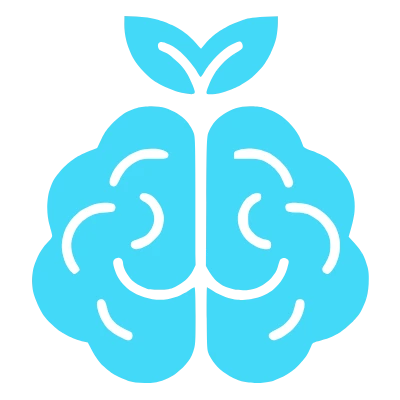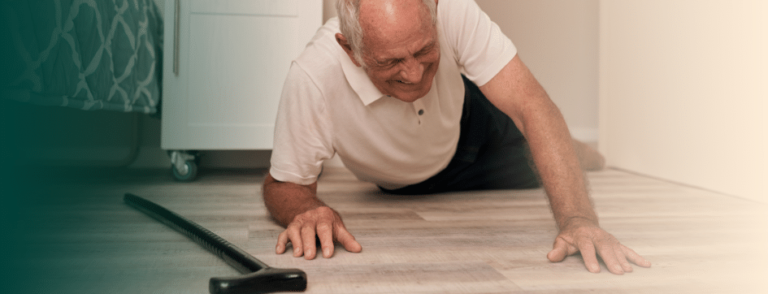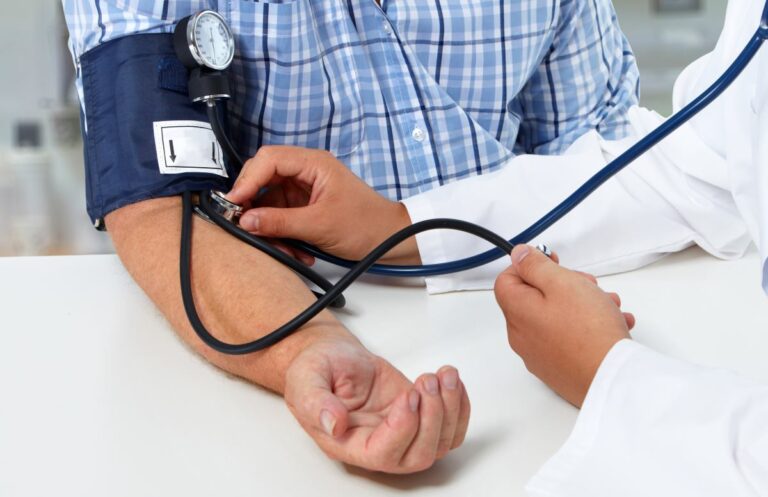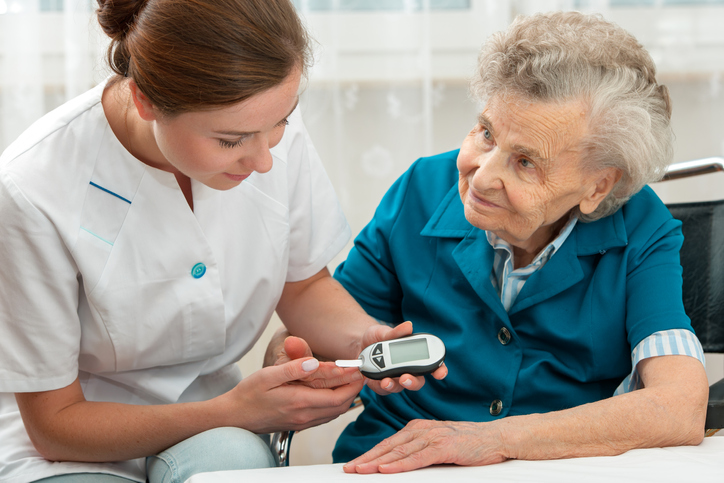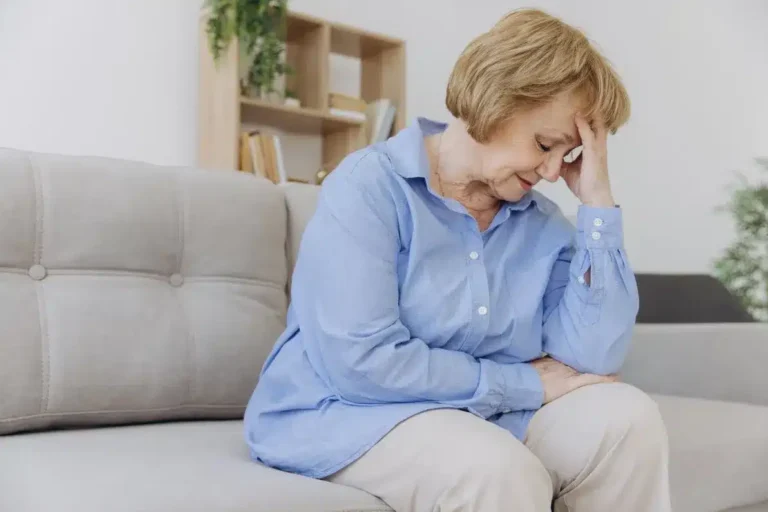As we age and the body ages, certain diseases such as hypertension and hypotension may appear. The prevalence of hypertension in Spain is high. According to data from the Spanish Society of Cardiology, 42.6% of the Spanish adult population aged 18 years or older is hypertensive, more in the case of men (49.9%) than women. women (37.1%). We must try to keep blood pressure regulated at any age, but especially if high blood pressure occurs regularly in older people, since the associated health risks can be very serious.
Let us remember that blood pressure is the force that blood exerts when circulating over the walls of the veins. This force is necessary to be able to make blood, which carries oxygen and nutrients, reach the entire body. But if this strength is exaggerated, or is little, or is unbalanced, we can have important problems, such as cardiovascular and kidney diseases.
According to the Fundación Española del Corazón the normal levels of systolic (maximum) blood pressure are between 120-139 mmHg, and those of diastolic (minimum) between 80 and 89 mmHg. Lower numbers can also be considered normal, as long as they do not cause any symptoms.
Causes of hypertension in older people
Why does blood pressure rise with age? The answer is found in several factors:
- Stiffness of the arteries (arteriosclerosis). With aging, arteries tend to become stiffer and less elastic. This can make it difficult for arteries to dilate and contract efficiently, leading to an increase in blood pressure.
- Changes in kidney function. Precisely, kidney function can decrease with age. This means that the kidneys cannot control the balance of salt and water in the body and, therefore, cannot regulate blood pressure.
- Hormones. Changes in hormone levels can influence increased salt and water retention, which affects blood pressure.
- Medical conditions. Some chronic diseases common in older people, such as diabetes and kidney disease, can affect blood pressure.
- Genetics. Genetic predisposition can also play a role in high blood pressure, and if there is a family history of high blood pressure, there is an increased risk.
- Lifestyle. A sedentary lifestyle, weight gain, lack of physical activity, a diet rich in sodium, excessive alcohol consumption and smoking are factors that can contribute to the appearance of hypertension in older people.
- Emotional problems. If the elderly person frequently suffers from stress, anxiety, nervousness or sleep disorders, this can also influence the appearance of hypertension.
Symptoms of hypertension in older people
Hypertension often has no obvious symptoms, which is why it is known as “the silent killer.” The only way to know is to measure it and keep a record that we can do at home or at the health center. However, if there is a sudden large rise in voltage, we can notice a series of symptoms:
- Very severe headache. Although headaches are not specific to hypertension, some people may experience chronic headaches as a cause of hypertension.
- Fatigue and weakness. Lack of energy, fatigue, and weakness can be symptoms of hypertension, although these can also be related to other health problems.
- Vision problems. Uncontrolled hypertension can affect the blood vessels in the eyes, which can result in vision changes, double vision, or even vision loss in severe cases.
- Ringing in the ears. Some older people with hypertension may experience ringing in the ears, also known as tinnitus.
- Heart palpitations. Untreated hypertension can affect the heart and lungs, especially during exercise.
- Dizziness and balance problems. Hypertension can affect blood flow to the brain, which could cause dizziness or balance problems or vertigo.
Risks associated with high blood pressure in older people
High blood pressure in older people can increase the risk of various complications and health conditions. Some of the risks and consequences associated with high blood pressure in older people are:
- Cardiovascular diseases
Hypertension is a major risk factor for heart diseases, such as coronary heart disease, heart failure, and stroke. High blood pressure can damage the coronary arteries and increase the workload of the heart, since when blood pressure is high, the heart has to work harder to pump blood. Thus, if the heart cannot pump enough blood to meet the body’s needs, heart failure occurs.
- Cerebrovascular accidents (CVA)
High blood pressure is a significant risk factor for stroke. It can damage brain arteries or cause blood clots to form that can block blood flow to the brain.
- Chronic kidney disease
Hypertension can damage small blood vessels in the kidneys and increase the risk of chronic kidney disease.
- Vision problems
Uncontrolled hypertension can affect the blood vessels in the eyes, which can lead to vision problems and even vision loss.
- Cognitive problems
Some research suggests that high blood pressure could be associated with an increased risk of cognitive decline and dementia in older people by affecting the ability to think, remember and learn.
- Aneurysms
High blood pressure can weaken the walls of blood vessels, increasing the risk of aneurysm formation (abnormal dilation of blood vessels). If an aneurysm ruptures, it can be life-threatening.
- Peripheral arterial insufficiency
High blood pressure can affect blood circulation in the extremities, which can lead to peripheral arterial insufficiency.
- Sleep problems
Hypertension can contribute to sleep disorders, such as sleep apnea, which in turn can increase the risk of cardiovascular problems.
How to control hypertension in older people
The risks of hypertension can be greatly reduced or prevented by adopting a healthy lifestyle that includes:
- Healthy diet
Reducing sodium intake can help control blood pressure. This means avoiding processed foods and adding less salt to meals. It is also essential to follow a diet rich in fruits, vegetables, nuts, grains, lean proteins and low-fat dairy products. Finally, use olive oil as the main fat
- Regular physical activity
Regular physical activity, such as walking, swimming, or low-impact exercise, can help maintain cardiovascular health and control blood pressure.
- Maintain a healthy weight
Weight loss can help reduce blood pressure in people who are overweight or obese. This is usually achieved through a combination of diet and exercise.
- Limit alcohol
Moderate alcohol consumption may be acceptable, but excess alcohol can increase blood pressure, so it is recommended to limit alcohol intake, especially in older people.
- Quit smoking
Smoking can increase blood pressure and also increases the risk of heart disease, so quitting this habit is very beneficial for overall health.
- Stress management
Managing stress through techniques such as meditation, deep breathing, yoga or practicing relaxing hobbies can help control blood pressure.
- Medicines
In many cases it is necessary to combine the change in habits with pharmacological treatments (diuretics, beta blockers, ACE inhibitors) which are always under medical prescription. It is important to take medications as directed and schedule regular checkups to adjust the dosage as needed.
Many diseases, such as hypertension and its consequences, can increase the dependency of older people. That is why in the Day Centers and Residences of NAMI we take maximum care of the nutrition and medical control of our elderly with hypertension, also offering activities that promote exercise and physical and cognitive maintenance that guarantee a good quality of life.
